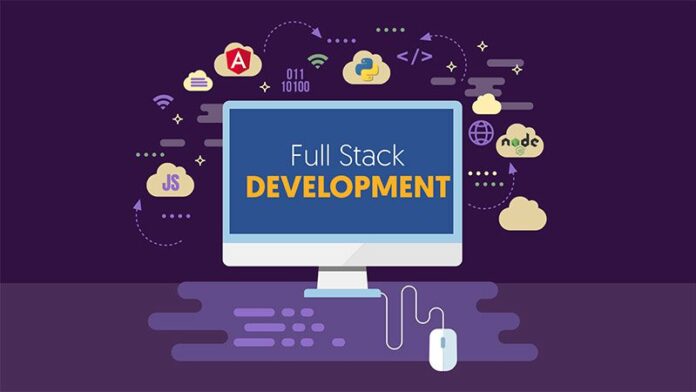Introduction
In the competitive world of real estate, staying ahead requires efficient management and streamlined processes. Implementing a Real Estate ERP (Enterprise Resource Planning) system can be a game-changer. This article explores how Real Estate ERP can transform your business operations, enhance productivity, and boost profitability.
What is Real Estate ERP?
Real Estate ERP is a comprehensive software solution designed to manage and integrate all facets of a real estate business. From property management to financial accounting, it consolidates various functions into a single platform. This integration facilitates better decision-making and operational efficiency.
Benefits of Real Estate ERP
Enhanced Efficiency
A Real Estate ERP system automates routine tasks, reducing manual intervention. This automation leads to significant time savings, allowing your team to focus on strategic activities. For instance, lease management and maintenance scheduling become seamless, ensuring timely actions.
Improved Data Management
Centralized data management is a critical advantage of Real Estate ERP. All information, from tenant details to financial transactions, is stored in one place. This centralization ensures data accuracy and consistency, making it easier to generate reports and conduct analyses.
Financial Control
Managing finances in real estate can be complex. A Real Estate ERP provides robust financial management tools, including budgeting, forecasting, and expense tracking. These tools offer a clear view of your financial health, enabling better financial planning and control.
Enhanced Customer Relationship Management
Customer satisfaction is pivotal in real estate. An ERP system includes CRM features that help manage customer interactions, track communication history, and improve service delivery. Enhanced CRM capabilities lead to better customer retention and satisfaction.
Key Features of Real Estate ERP
Property Management
Property management modules in ERP systems cover everything from tenant management to lease administration. They provide real-time access to property performance metrics, helping managers make informed decisions.
Accounting and Finance
An integrated accounting module ensures all financial transactions are recorded accurately. It supports functions like accounts payable, receivable, and general ledger management, streamlining financial operations.
Reporting and Analytics
Real Estate ERP systems offer advanced reporting and analytics tools. These tools provide insights into various aspects of the business, such as occupancy rates, revenue trends, and maintenance costs. Data-driven insights enable strategic planning and improved operational efficiency.
Compliance Management
Compliance with regulatory requirements is crucial in real estate. ERP systems help manage compliance by tracking necessary documentation and ensuring adherence to industry standards. This feature minimizes the risk of legal issues and penalties.
Choosing the Right Real Estate ERP
Scalability
Select an ERP system that can grow with your business. Scalability ensures the system remains effective as your operations expand.
Customization
Every real estate business has unique needs. Choose an ERP that offers customization options to tailor the system to your specific requirements.
User-Friendly Interface
A user-friendly interface is vital for smooth adoption. Ensure the ERP system is intuitive and easy to use, minimizing the learning curve for your team.
Support and Training
Reliable support and training are essential for maximizing the benefits of your ERP system. Choose a vendor that provides comprehensive training and ongoing support.
Key Features of Real Estate ERP
Property Management
Real Estate ERP systems offer advanced property management features. These include tools for listing properties, tracking occupancy rates, scheduling maintenance, and managing tenant information.
Financial Management
Managing finances in real estate can be complex, but ERP systems simplify this with automated accounting, budgeting, forecasting, and expense tracking. This ensures accurate financial data and improved financial control.
Customer Relationship Management (CRM)
An integrated CRM within the ERP helps manage and nurture client relationships. It stores customer data, tracks interactions, and facilitates personalized communications, enhancing customer satisfaction.
Lease and Contract Management
ERP systems streamline lease and contract management by digitizing contracts, setting up renewal alerts, and ensuring compliance with legal standards. This reduces paperwork and minimizes the risk of errors.
Analytics and Reporting
With powerful analytics and reporting features, Real Estate ERPs provide real-time insights into business performance. These tools help in tracking key performance indicators (KPIs) and making data-driven decisions.
Benefits of Implementing Real Estate ERP
Improved Efficiency
By automating routine tasks and integrating various functions, Real Estate ERP systems significantly boost operational efficiency. This allows your team to focus on strategic initiatives rather than getting bogged down by administrative work.
Enhanced Customer Experience
A seamless CRM system ensures that customer interactions are personalized and efficient. This improves customer satisfaction and fosters long-term relationships.
Streamlined Operations
With all business functions integrated into one platform, processes become more streamlined. This reduces duplication of efforts and ensures that everyone is on the same page.
Better Financial Control
Automated financial management features provide accurate and timely financial data. This enhances budgeting, forecasting, and overall financial control, helping you make informed decisions.
Data-Driven Decision Making
With access to real-time data and powerful analytics tools, you can make decisions based on solid data rather than gut feelings. This leads to better outcomes and a competitive edge.
Conclusion
Implementing a Real Estate system can revolutionize your business operations. From enhancing efficiency to improving financial control, the benefits are substantial. By choosing the right ERP solution, you can streamline processes, boost productivity, and achieve greater profitability. Embrace Real Estate ERP to stay competitive in the ever-evolving real estate industry.
Also read ,The luxurious apartments in Park View City offer stunning views and top-notch amenities, making it a highly sought-after residential area.

